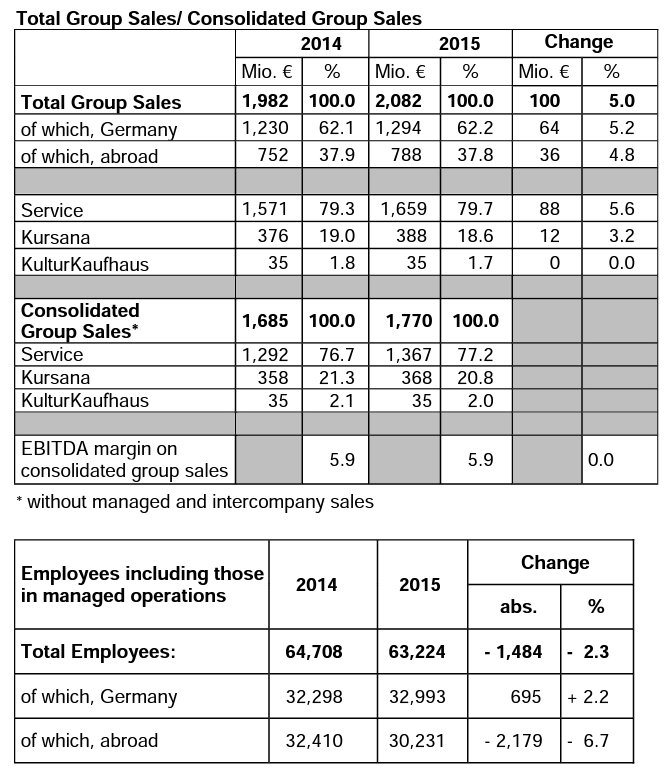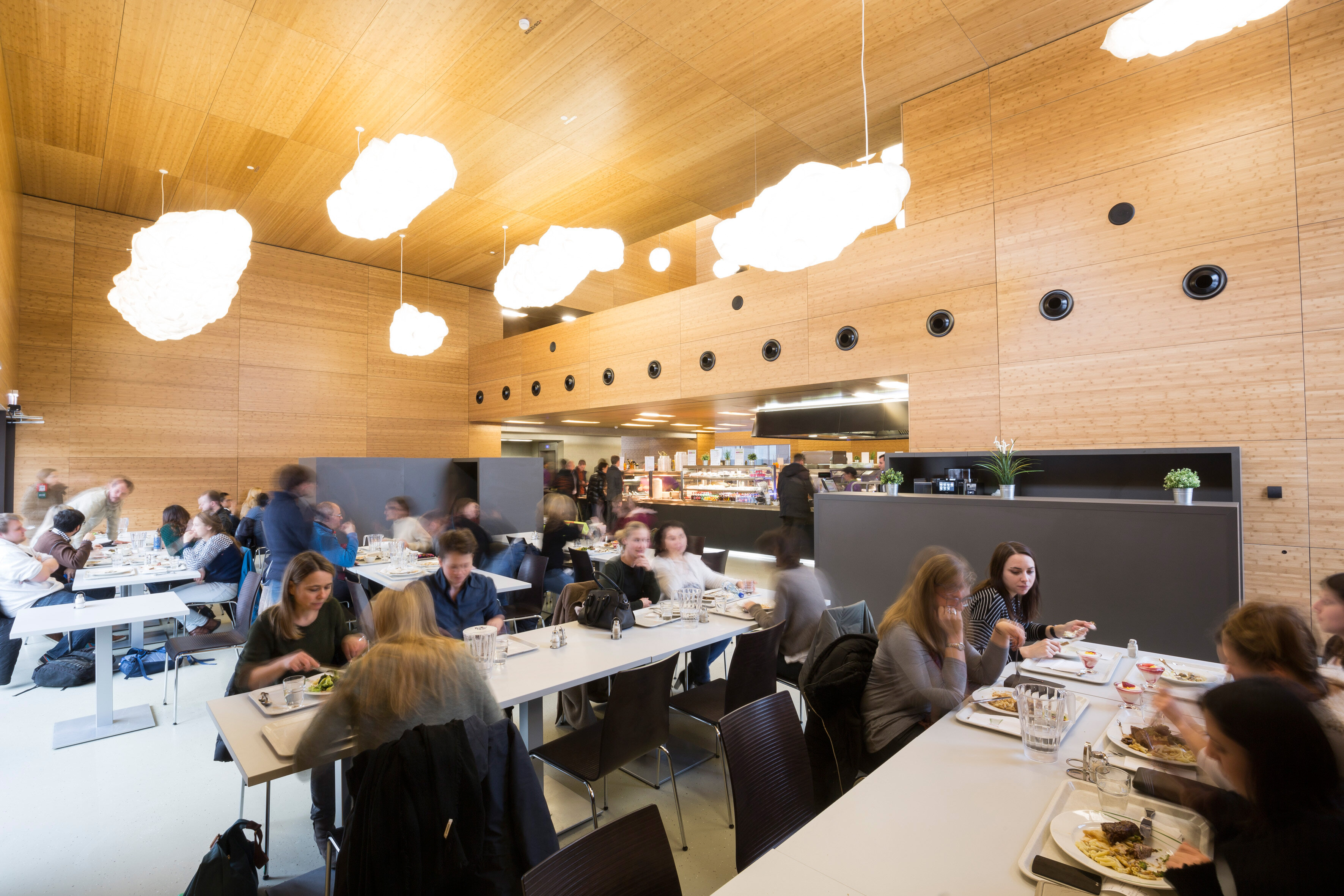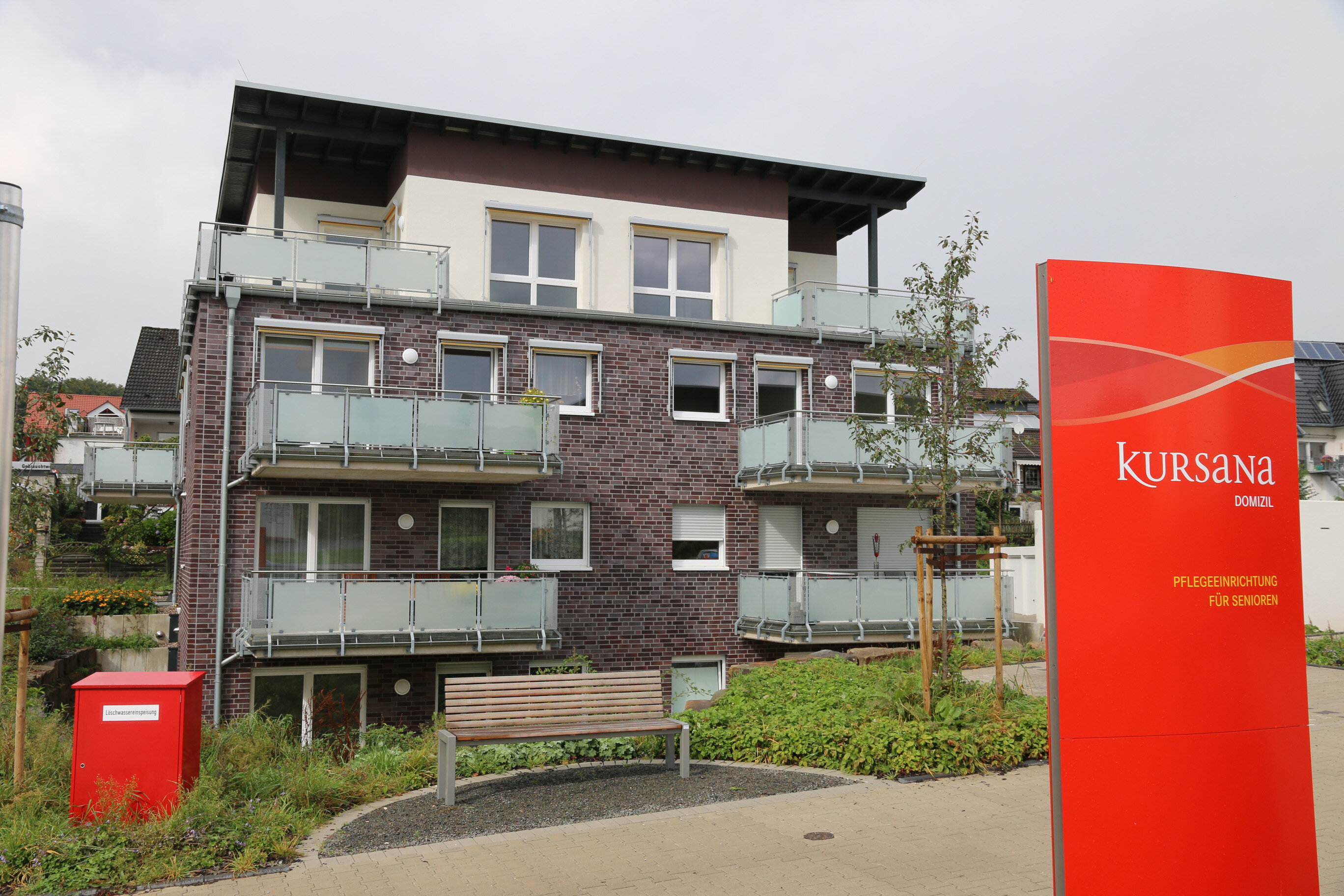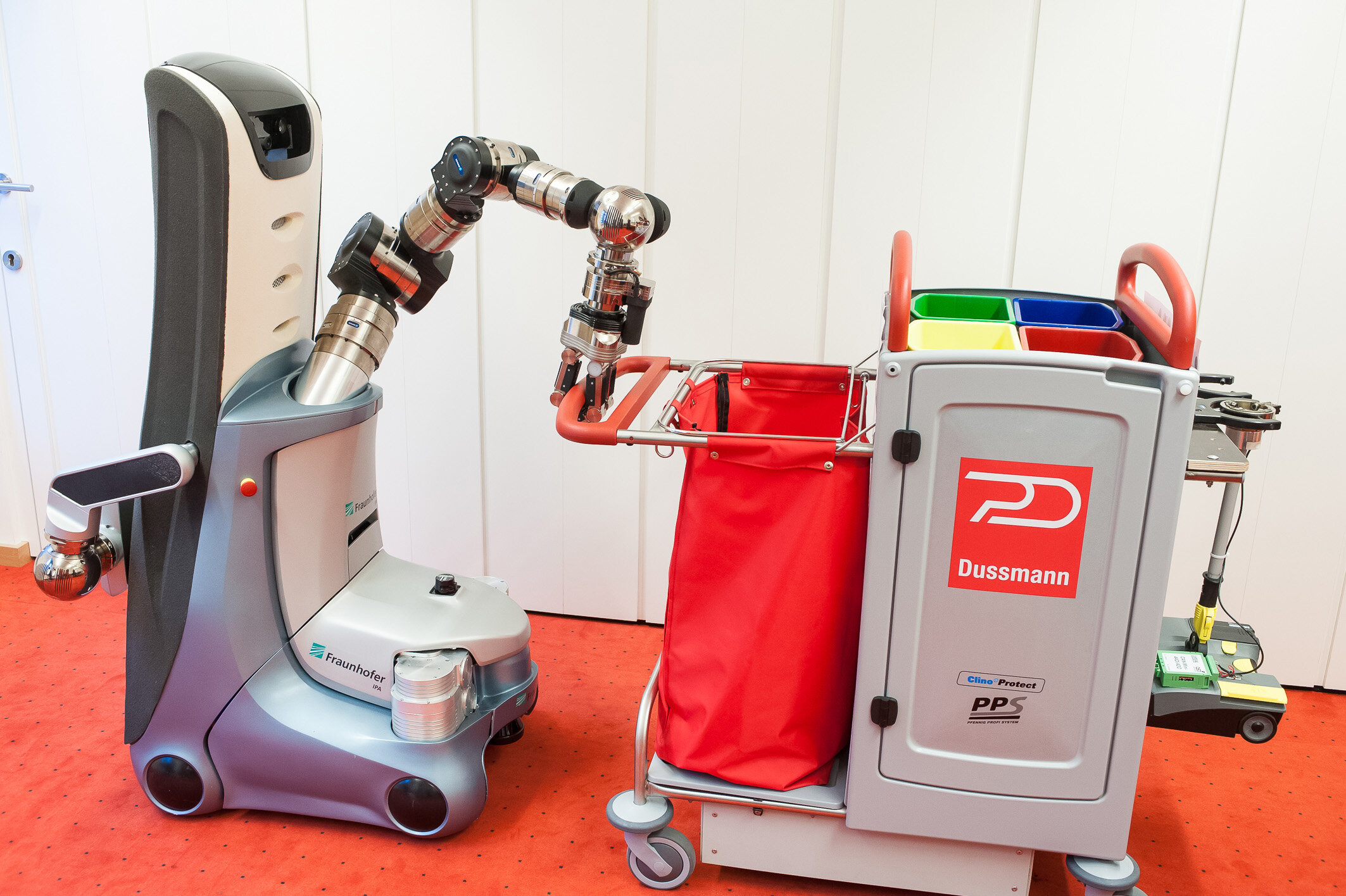Dussmann Group Sales Exceed Two Billion Euros For the First Time
26.05.2016 — Multi-service provider grows worldwide // three major drivers of success; client satisfaction, employer image and financial stability // reinforcement of technical competence // participation in digitalization of facility management
For the financial year 2015, sales generated by the international multi-service provider, the Dussmann Group, exceeded the 2 billion Euro mark for the first time. With activities in 16 countries, the Group achieved total sales of 2.08 billion Euros, an increase of 100 million Euros or 5 percent over the previous year. Growth was exclusively organic, boosted by long-term client relationships and major new contracts. The EBITDA margin on consolidated group sales for 2015, which also saw an increase, remained consistent at 5.9 percent.
“We have had a good year, having focused on three major drivers of success: the satisfaction of our clients, our image as an attractive employer and sound, value-oriented company development” said CEO Dirk Brouwers at the annual press conference on May 26, 2016 in Berlin. The Dussmann Group backs these drivers with social responsibility and its commitments towards the environment and its workforce, systematized in its sustainability concept, Dussmann EcoSystem. On the facility management market, requirements are growing in terms of economic and environmental sustainability and energy efficient services. The Dussmann Group anticipates increased sales for 2016. The chairperson of the board of trustees of the Dussmann Group, Catherine von Fürstenberg-Dussmann, commented: “We are happy to confirm total sales of two billion Euros but it is only a number. What really count are the people behind the numbers. They do a good job every single day with plenty of Dussmann Spirit.”
In 2015, 700 additional jobs were created in Germany and per capita sales grew due to the increase in the complexity of job profiles. The number of employees worldwide, including those working in operations managed by the Dussmann Group, declined by 1,484 or 2.3 percent. In 2014 there were 64,708 people employed, in 2015 it was 63,224 (average over the year). The change is due to withdrawal from Bulgaria following a management buyout and in some countries, higher grade contracts which are less personnel-intensive. In Berlin/Brandenburg, the number of employees remained unchanged at 5,950.
Reinforcement of the technical services division through acquisition of specialist skills
Acquisition of specialized companies strengthened the technical services division of the Dussmann Group enabling the company to offer specialized services with its own personnel. On March 23, 2016, the elevator manufacturer HEBO Aufzugstechnik GmbH based in Hallenberg (North Rhine-Westphalia) was acquired. Its strength is the manufacture of customized elevators. The other example of expansion of technical service specialization was the acquisition of Dresdner Kühlanlagenbau GmbH, DKA in April 2013. As a result, two established brands with excellent reputations are now members of the Dussmann Group. The Group can therefore offer manufacture, modernization, service and operations from a single source in both fields of elevator manufacture and refrigeration technology.
Contributing to digitalization of FM
The Dussmann Group sees the digitalization of the value chain in facility management as a major competitive factor in the coming years. “We can develop our business model by linking personnel and IT, redefining the interaction between humans and technology” explained Dirk Brouwers. “Digitalization means transforming the manual crafts approach of the past decades into an industrial FM approach. This enables us to provide increased efficiency and better quality – real added value for our clients and employees” continues Dirk Brouwers.
The Dussmann Group formed an applications partnership with the Fraunhofer IPA institute in 2013 to carry out a service robotics project. One example of own software solutions is the Dussmann EnergyCloud. This web-based energy monitoring program monitors energy consumption and facilitates the establishment of bench marks. A further example is the use of mobile devices to manage service operations on client sites. The Dussmann Group is also looking at interactive portal solutions. An increasing number of client processes are managed by the highly specialized Dussmann alarm receiving center (ARC). The center, built in accordance with EU norms is located in Gardelegen (Saxony-Anhalt). Digitalization also plays a growing role in nursing and care; it gives nursing staff more time for individual attention to residents.
Kursana is currently implementing software in all of its operations which facilitates paper-free, digital planning and documentation. Kursana is also one of the first German care organizations to reorganize its nursing operations and documentation according to the Beikirch structural model which will lead to further time savings.
Development of the individual company divisions during 2015
All of the Dussmann Group company divisions made a contribution to the good results of 2015. Dussmann Service creates customized solutions even for complex real estate and processes by linking various facility management services. Almost all of the international operations saw growth in most services and in most of the sectors they serve.
The two largest subsidiaries, Germany and Italy, won tenders for a number of major contracts in industry and in health care. In April 2015, Dussmann Italy acquired the remaining shares of the surgical sterilization and logistics provider to hospitals, Steritalia. In 2011, Dussmann became the majority shareholder. Numerous major hospitals contracted their surgical sterilization to Steritalia – a further component of the Dussmann Group’s goal of expanding its sector specialization in the health care sector.
The subsidiaries in Luxembourg and Austria maintain their market positions. Luxembourg’s largest and most modern industrial laundry, Dussmann Lavador restarted operations following reconstruction. In autumn 2015, Dussmann took on responsibility for catering in the restaurant in the University of Luxembourg in Esch-Belval. In Switzerland, the brand transition from Abegglen to Dussmann Service AG was completed in 2015.
Business development in Eastern Europe was negative in 2015. Dussmann Middle East was reestablished. 2015 was yet again a positive year for Dussmann Far East.
The company division Care & Kids (Kursana and Dussmann KulturKindergarten) continued to grow in 2015. With 116 residential care facilities, Kursana has established itself as a leading provider with a quality-oriented approach in a market, dominated by consolidation. The milestones of 2015 included the 30th anniversary and the opening of Kursana Domizil Kürten before the city gates of Cologne which boasts the Domizil with 81 rooms and two service facilities with senior-friendly, barrier-free apartments.
The facilities for the elderly in Mücke (Hessen, 86 places, opening at the end of 2016), in Straelen, Oberhausen and in Hamminkeln (all North Rhine-Westphalia, each with 80 places, opening in 2017) will continue the positive trend at Kursana. The number of ambulant services which complement residential nursing and care is also growing.
In autumn 2016, Dussmann KulturKindergarten will open its sixth child-care facility at the transmission system operator 50Hertz in Berlin. The facilities provide in-house child-care for the personnel of major companies, clinics and the German federal armed forces with flexible opening times, bilingual educators and an emphasis on the arts.
Dresdner Kühlanlagenbau, DKA, acquired in 2013, showed satisfactory growth in 2015. The DKA continues to expand its specialization, for example in the fields of energy technology and manufacture of heat pumps. In February 2016, DKA founded the third subsidiary in Austria, following Germany and Poland.
Dussmann das KulturKaufhaus is currently investing in extensive renovation. Despite the associated limitations, sales have been maintained at a stable level.



